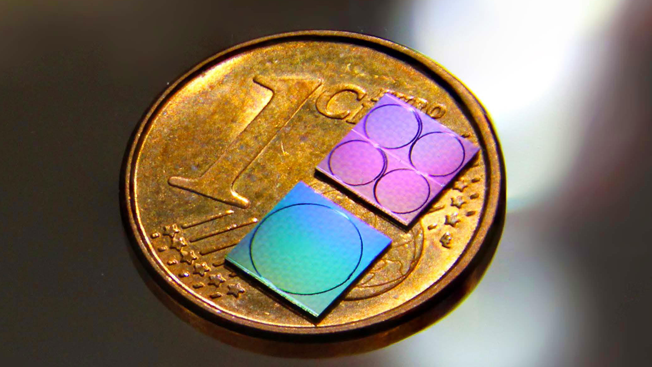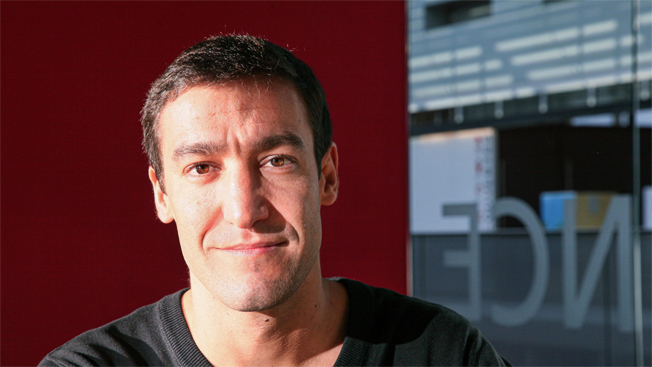As a CYD Doctoral Fellow, Dina will conduct research on vulnerabilities and backdoors in heterogeneous hardware platforms, for protecting the confidentiality, integrity and availability of cyber and cyber-physical systems.
Read MoreNews
EPFL Scientists Generate Laser-based Microwaves Using Built-in Photonic Chips
This is an important breakthrough because high-frequency bands are prone to logjams because of high demand. On the other hand, microwave photonics offers high bandwidth, low transmission loss, and immunity to electromagnetic interference.
Read MoreGoogle-Apple–based “SwissCovid” App in Pilot Test
The first coronavirus digital contact-tracing app using OS updates from Google and Apple is now in a large-scale pilot test. Dubbed as SwissCovid, the app is based on the decentralized protocol, where operations that have data privacy implications are not stored or conducted through a centralized server, but on the phone of individual users. Employees at EPFL, ETH Zurich, the Swiss Army, and select hospitals and cantonal administrations can now download the app for tracing contacts at risk of transmission of COVID-19.
Read MoreNew Fuzzing Tool Detects Vulnerabilities in USB Driver Stacks
Mathias Payer and Hui Peng have developed a USB software security tool called USBFuzz. The researchers plan to release USBFuzz on GitHub as an open source project following their presentation at Usenix.
Read MoreEPFL Field-tests Contact Tracing App
As the name implies, the international Decentralized Privacy-Preserving Proximity Tracing project (DP3T) focuses on data privacy and negates any chance of data being misused by hackers.
Read MoreSurvey Reveals Importance of the Messenger in COVID-19 Communication
The research paper “Who is listening? Spokesperson Effect on Communicating Social and Physical Distancing Measures During the COVID-19 Pandemic” is authored by Andreas Spitz and Ahmad Abu-Akel (Institute of Psychology, University of Lausanne) and Robert West (School of Computer and Communication Sciences, EPFL).
Read MoreComing Soon: EPFL’s App-based Self-screener for COVID-19
A group of five researchers at EPFL’s Embedded Systems Laboratory (ESL) have developed an artificial intelligence-based system that allows you to record your cough and have it analyzed almost instantly to indicate whether you have COVID-19. In a few weeks’ time, the team will release an app, aptly named Coughvid, which will be available for free and direct download to your devices.
Read MoreJEDI Empanels EPFL Scientists in Search for COVID-19 Cure
JEDI has appointed a high-profile scientific committee to run the ‘Billion Molecules against COVID-19’ challenge, including Babak Falsafi and Bryan Ford from EPFL’s School of Computer and Communication Sciences.
Read MoreEPFL, ETH Zurich Lead Contact Tracing Technology to Tackle COVID-19
Researchers from EPFL and ETH Zurich have developed a digital contact tracing technology by working closely with a large number of European colleagues. They are now very close to releasing a solution called DP-3T (Decentralized Privacy-Preserving Proximity Tracing).
Read MoreEPFL Software Helps Cryptographic Innovation for Swiss Hospitals
In a major breakthrough last year, EPFL and the Lausanne University Hospital (CHUV) collaborated to develop a secure software called the MedCo system. The system took shape in the Laboratory for Data Security (LDS), headed by Professor Jean-Pierre Hubaux, and is based on software libraries developed by the Decentralized and Distributed Systems (DEDIS) Lab, headed by Professor Bryan Ford.
Read More








